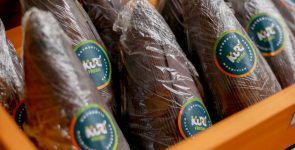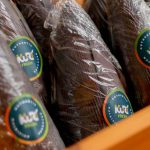
The Free Trade Agreement (FTA) between the Maldives and China presents a transformative opportunity for Maldivian exporters, granting preferential access to one of the world’s largest and most dynamic markets. However, while the FTA reduces tariffs on key exports such as fisheries, the devil lies in the details, particularly in the rules of origin (ROO). These rules determine which goods qualify for tariff exemptions, posing challenges for exporters seeking to maximise the agreement’s benefits.
What Are Rules of Origin?
Rules of origin are the backbone of any FTA, defining the minimum criteria a product must meet to be considered “originating” from a member country. Under the Maldives-China FTA, goods must satisfy one of the following:
- Be wholly obtained or produced within the exporting country, such as marine products caught in Maldivian waters.
- Be produced using non-originating materials that undergo sufficient transformation, meeting a regional value content (RVC) threshold of at least 40% of the product’s free-on-board (FOB) value.
Goods that do not meet these criteria, such as those involving minimal operations like packaging or labelling, are excluded from preferential treatment. For Maldivian exporters, this necessitates a sophisticated understanding of production inputs and detailed record-keeping.
Opportunities for Maldivian Exporters
- Fisheries Sector at the Forefront
The FTA provides significant tariff reductions on fisheries products, a mainstay of the Maldivian economy. Tuna, in particular, stands to benefit as it accounts for a substantial portion of Maldives’ exports. With the proper ROO compliance, these products can enter the Chinese market more competitively, enhancing profitability for exporters. - Value-Added Goods
Encouraging the use of local inputs to meet the RVC threshold offers an opportunity for the Maldives to expand its manufacturing and processing industries. For instance, frozen or canned tuna products with locally sourced packaging could meet ROO requirements, enabling exporters to tap into China’s growing demand for processed seafood. - Services Integration
Beyond goods, the FTA also opens opportunities for service exports, particularly in tourism. Maldivian service providers offering unique tourism packages tailored to Chinese consumers could benefit from increased market access.
Challenges in Compliance
- Complexity of Certification
Exporters must secure a certificate of origin to demonstrate compliance with ROO, issued by authorised bodies such as the Maldives Customs Service. The process requires meticulous documentation, including proof of input sourcing and production processes. For small and medium enterprises (SMEs), the administrative burden can be significant. - Supply Chain Constraints
Maldivian exporters dependent on imported inputs must ensure that the value of non-originating materials does not exceed 60% of the FOB value. This can complicate production planning, particularly for industries lacking robust supply chain infrastructure. - De Minimis Provision
The agreement permits up to 10% of the FOB value to consist of non-originating materials that fail to meet a change in tariff classification. While this offers flexibility, exporters must navigate the fine balance between compliance and competitiveness. - Sector-Specific Restrictions
Certain industries face additional restrictions. For example, the fisheries sector must comply with China’s stringent sanitary and phytosanitary (SPS) standards, which demand rigorous testing and certification. - Minimal Operations Clause
Operations such as simple assembly, repackaging, or relabelling do not qualify products for preferential treatment. Exporters relying on these processes may need to invest in value addition to meet the ROO.
Support Measures and Recommendations
To unlock the full potential of the FTA, the Maldives must enhance its support for exporters through:
- Capacity Building: Provide training programmes on ROO compliance, supply chain management, and documentation processes for businesses.
- Digital Platforms: Develop systems to simplify the certificate of origin application process, enabling real-time tracking and submission.
- Government Collaboration: Foster closer partnerships between the government and the private sector to address challenges, such as meeting SPS standards and accessing financing for value-added production.
Additionally, bilateral initiatives with China, such as technology transfer programmes and joint ventures, could improve the competitiveness of Maldivian exporters while deepening economic ties.
While the Maldives-China FTA creates unprecedented opportunities for Maldivian exporters, especially in fisheries and value-added goods, it also introduces significant compliance challenges under the rules of origin framework. With strategic planning, capacity building, and government support, the Maldives can not only navigate these challenges but also position itself as a strong player in international trade, leveraging the agreement to drive economic growth and diversification.











